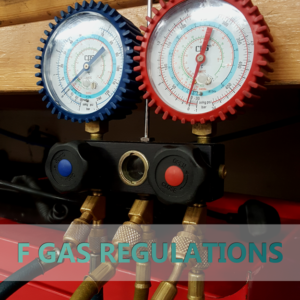 Despite the UK’s decision to quit the EU, the UK air conditioning and refrigeration industry will not see any changes to the F-gas regulations.
Despite the UK’s decision to quit the EU, the UK air conditioning and refrigeration industry will not see any changes to the F-gas regulations.
While the original F-gas regulation (EC517/2014) emanated from Brussels and was driven by the European Commission, it was transposed directly into UK law.
“Therefore, it is now part of the British legal system and it would require Westminster to repeal one of its own laws for the industry’s F-gas measures to be changed,” commented Graeme Fox, the former president of the European contractors group AREA, who was heavily involved in formulating the law’s structure.
As a result, he sees no impact for the foreseeable future on companies operating in the UK market and no change to the mandatory requirements for certification with industry registration schemes like Refcom.
“Our government, the Environment Agency and regional equivalents are all committed to environmental responsibility so I cannot foresee any circumstance where we would rescind this law,” said Graeme Fox, who is now senior mechanical engineer at the UK’s Building Engineering Services Association (BESA) and a director of the Air Conditioning and Refrigeration Industry Board (ACRIB).
Competence
“The certification and personnel competence requirements have all been set at UK level. They are all different across the EU; even though we have the mutual recognition status between international schemes.
“So again, despite the Brexit vote, there will be no change to the requirements for legally working with fluorinated greenhouse gases and systems containing them here in the UK,” he added.
It has been a legal requirement since July 2009 for all businesses that install, maintain or service stationary equipment containing or designed to contain f-gas refrigerants to obtain an F-gas company certificate.
Graeme Fox also pointed out that rather than reducing its influence, the UK refrigeration and air conditioning industry is actually looking to extend international co-operation by helping establish a worldwide scheme for certifying refrigerant handling competence on behalf of the United Nations Environment Programme (UNEP).
Mr Fox represents the UK on the working party developing the UNEP scheme. He said competence requirements would be set at a much lower level than what is already in place in the UK to reflect the wide variance in international practices and the fact that many countries currently have no competence scheme at all.
So, although the UK is happy to help UNEP establish this much needed method for harmonising global standards, Mr Fox said it was “highly unlikely that the post-Brexit UK government will seek to water down our own hard won professional standards” to meet the lower minimum set by a new international scheme.
Source: http://www.coolingpost.com/world-news/brexit-brings-no-change-to-f-gas/



